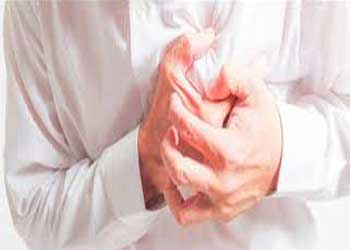- Home
- Editorial
- News
- Practice Guidelines
- Anesthesiology Guidelines
- Cancer Guidelines
- Cardiac Sciences Guidelines
- Critical Care Guidelines
- Dentistry Guidelines
- Dermatology Guidelines
- Diabetes and Endo Guidelines
- Diagnostics Guidelines
- ENT Guidelines
- Featured Practice Guidelines
- Gastroenterology Guidelines
- Geriatrics Guidelines
- Medicine Guidelines
- Nephrology Guidelines
- Neurosciences Guidelines
- Obs and Gynae Guidelines
- Ophthalmology Guidelines
- Orthopaedics Guidelines
- Paediatrics Guidelines
- Psychiatry Guidelines
- Pulmonology Guidelines
- Radiology Guidelines
- Surgery Guidelines
- Urology Guidelines
Early follow up in Heart failure patients decreases mortality

For patients having received emergency care for heart failure, early follow-up by a physician within 7 days after emergency department discharge is associated with lower rates of death or admissions to hospital, according to research published in CMAJ (Canadian Medical Association Journal).
More than half of heart failure patients who visit the emergency room don’t receive prompt follow-up care, and a Canadian study suggests the delay is associated with more complications and lower survival.
Researchers studied more than 34,000 patients who received emergency care for heart failure in Ontario. Only about 16,000, or 47 percent, saw a doctor within a week after leaving the emergency room.
Among the other patients, many did see a physician within a month after leaving the hospital. But still, compared to patients who waited eight to 30 days for a follow-up doctor’s visit, those who got follow-up care within a week of discharge from the emergency room were eight percent less likely to die or have serious complications that resulted in repeat hospitalizations within a year.
For patients newly diagnosed with heart failure in the emergency room, the payoff of prompt follow-up was even more dramatic. They were 18 percent less likely to die if they saw a doctor within one week than if they waited eight to 30 days to see a physician.
Overall, almost one in four patients in the study died within one year.
“Even the most motivated patients sometimes cannot get to see their health care provider in a timely way,” said lead study author Dr. Clare Atzema of Sunnybrook Health Sciences Centre and the University of Toronto in Canada.
“I suspect that is the major barrier, as we know that patients with very serious diseases, like heart failure, have similar waits to be seen as many other diseases, such as diabetes, chronic obstructive pulmonary disorder, and high blood pressure,” Atzema said by email.
In the past, wait times for follow-up care might not have been as critical because many patients who came to emergency rooms for heart failure and other serious chronic illnesses would be admitted to the hospital, researchers note in CMAJ. But today, many of these same patients are sent home to manage recovery on their own, often with a long to-do list of new prescriptions to fill, diagnostic tests to get, and doctors to see.
“With the current fiscal pressures and the desire to keep more patients out of hospital, more and more of these patients will be discharged home from the ER in the future, instead of being admitted to hospital,” Atzema said.
Heart failure happens when the heart muscle is too weak to pump enough blood through the body. Symptoms can include fatigue, weight gain from fluid retention, shortness of breath and coughing or wheezing.
Checking for fluid accumulation is especially crucial after an emergency room visit. Doctors can do this during a follow-up exam by listening to patients’ chests and weighing them.
The study wasn’t designed prove that the timing of follow-up care directly impacts the chance of serious complications or death after an emergency room visit for heart failure.
The study also didn’t look at emergency room visits for people with heart failure who were seen for another reason, so it may have underestimated the impact of prompt follow-up care for heart failure, the authors note. It’s also not clear what factors influenced how soon patients had follow-up exams.
“Insurance coverage is not a problem in Canada, however there may have other factors (geographic travel, provider availability, patient willingness to return for follow up visits) that contributed to these access issues,” said Dr. Amrut Ambardekar, a researcher at the University of Colorado in Aurora who wasn’t involved in the study.
“Heart failure is a chronic disease that requires longitudinal care,” Ambardekar said by email. “As there are a number of potential life-saving medical and device treatments for this condition, regular follow up in the outpatient setting is of paramount importance to improve outcomes.”

Disclaimer: This site is primarily intended for healthcare professionals. Any content/information on this website does not replace the advice of medical and/or health professionals and should not be construed as medical/diagnostic advice/endorsement or prescription. Use of this site is subject to our terms of use, privacy policy, advertisement policy. © 2020 Minerva Medical Treatment Pvt Ltd